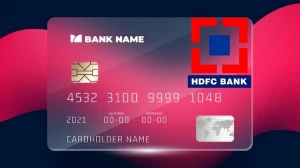
- Home »
- Credit Card »
- What is a Closing Date on a Credit Card?Will Closing a Credit Card Hurt My Credit?
What is a Closing Date on a Credit Card? Will Closing a Credit Card Hurt My Credit?
A Closing Date on a credit card, occurring every 28 to 31 days, signifies the end of the billing cycle, impacting monthly statements and potentially affecting credit scores through factors like increased utilization and changes in account age.
by Sai V
Updated Nov 29, 2023
On This Page
- What is a Closing Date on a Credit Card?
- Will Closing a Credit Card Hurt My Credit?
- What is the Safe Way to Cancel a Credit Card?
- How to Find Your Credit Card Closing Date?
- What is the Difference Between the Closing Date and the Payment Due Date?
- What Are Some Alternatives to Canceling a Credit Card?
What is a Closing Date on a Credit Card?
A Closing Date on a credit card refers to the final day of the billing cycle, which determines the period for which transactions are included in the subsequent monthly statement. Unlike a fixed calendar month, the closing date varies based on when the credit card account was opened, typically spanning 28 to 31 days. Understanding this date is crucial for managing monthly cash flow, as it precedes the payment due date.
It also plays a pivotal role in influencing credit scores, as timely payments and strategic credit utilization around the closing date positively impact creditworthiness. Moreover, the closing date is significant for maximizing credit card rewards, as it marks the end of the accrual period for transactions, influencing both the calculation and redemption of rewards.
Will Closing a Credit Card Hurt My Credit?
Closing a credit card has the potential to harm your credit, especially if the card being closed has a high credit limit. This is because it can increase your overall credit utilization ratio, impacting your credit score negatively. Additionally, closing an older credit card may reduce the average age of your credit accounts, which can also influence your credit score.
The extent of the impact depends on the specific credit scoring formula used, with FICO considering both open and closed accounts in the age calculation, while VantageScore may exclude closed accounts. Therefore, it's advisable to carefully assess the potential consequences on credit utilization and account age before deciding to close a credit card.
What is the Safe Way to Cancel a Credit Card?
Way to Cancel a Credit Card, emphasizing the importance of paying off balances, managing credit utilization, understanding valid closure reasons, following a safe cancellation process, and considering the impact on credit history.
Clear Balances: Pay off all credit card balances, not just the one being canceled, to $0 before closing the account.
Manage Credit Utilization: Understand and consider the impact of closing a credit card on your credit utilization ratio, aiming to keep it below 30%.
Valid Reasons for Closure: Consider closing a credit card in situations like divorce, high annual fees, or excessive temptation to overspend.
Safe Closure Process: Redeem any unused rewards, pay off balances, contact the card issuer to confirm a $0 balance, and request written confirmation via a certified letter.
Credit History Impact: Closing a credit card doesn't immediately remove it from credit reports; it continues to contribute to your credit history for up to seven or 10 years.
Embark on a comprehensive journey through the multifaceted world of Credit Cards with MarketsHost as your trusted companion, where we unlock the secrets to financial empowerment.
How to Find Your Credit Card Closing Date?
Credit Card Closing Date is a pivotal element in managing your finances effectively. By exploring methods such as reviewing mailed statements, accessing your online account, and paying attention to key details, you can pinpoint this crucial date and enhance your credit card management strategy.
Mailed Statements
When seeking your credit card closing date, start by inspecting the physical statements mailed to your address. These statements often contain crucial information about your billing cycle. Specifically, focus on identifying the billing period, usually presented as a date range. The closing date is then determined as the concluding day of this specified period.
Online Account Access
For a more immediate approach, log into your credit card's online portal using your login credentials. Once inside, navigate to relevant sections such as the account overview or statements. Look for information related to the billing period or statement balance, as these will provide insights into your credit card closing date.
Identifying Critical Information
To efficiently find your credit card closing date, pay attention to key details on your statements. First, check for the billing period information, usually presented as a date range like "02/21/2023 - 03/20/2023." The closing date corresponds to the end of this range. Additionally, examine the statement balance, which is often accompanied by a date that signifies the closing date. Some statements may also explicitly label the closing date for easy identification. Regular attention to these details ensures effective credit card management.
What is the Difference Between the Closing Date and the Payment Due Date?
Understanding your credit card statement is key to managing your finances wisely. The table below breaks down the important differences between the closing date and the payment due date, helping you navigate your billing cycle and avoid unnecessary fees and charges.
|
Aspect |
Closing Date |
Payment Due Date |
|
Significance |
Marks the conclusion of the billing cycle. |
Designates the deadline for credit card payments. |
|
Calculation Purpose |
Determines the statement balance. |
Specifies the required minimum payment. |
|
Included Transactions |
Encompasses all charges in the billing period. |
Addresses the outstanding balance from the previous statement. |
|
Treatment of Subsequent Charges |
Transactions post this date are included in the next month's statement. |
No impact on new transactions; focuses on the prior balance. |
|
Timeframe for Payment |
Variable, depending on the card issuer. |
Usually 21 to 30 days after the closing date. |
|
Consequences of Late Payment |
No late fee if settled before the due date. |
Late fees, penalties, and potential credit score impact if not paid punctually. |
|
Grace Period Initiation |
Triggers a grace period when the full balance is paid by the due date. |
The grace period spans from the closing to the due date, preventing interest on recent purchases. |
|
Interest Incurrence |
Absent if the entire balance is paid; new purchases may be interest-free. |
Accrues interest on the outstanding unpaid balance if not paid in full. |
|
Minimum Payment Role |
Minimum payment contributes to the statement balance. |
Mandatory to avoid late fees; partial payment incurs interest on the remaining balance. |
What Are Some Alternatives to Canceling a Credit Card?
Before opting to cancel a credit card, consider these alternatives. Negotiate with the issuer for better terms, focus on building credit for future options, and implement strategies to control spending. These proactive steps may address underlying concerns without resorting to cancellation.
Negotiate for Better Terms
Before canceling due to fees, contact the issuer to explore fee-free alternatives or switch to a card that better suits your needs. Initiating this conversation may lead to improved terms and help maintain your payment history with the same issuer.
Build Credit for Future Options
If a better card is currently out of reach, focus on responsible credit management to enhance your credit score. A positive payment history can pave the way for eligibility with improved rewards and perks in the future, offering better alternatives without cancellation.
Implement Spending Control Strategies
To curb overspending, consider removing the card from your wallet and storing it securely. Deleting saved payment information on online platforms adds an extra layer of protection against impulsive purchases. These strategies allow you to keep the card for emergencies while promoting mindful spending habits.
What is a Closing Date Credit Card - FAQs
1. What is a credit card closing date, and why is it important?
The closing date is the final day of your billing cycle, crucial for determining your monthly statement and managing cash flow.
2. Will closing a credit card impact my credit score?
Yes, especially if the card has a high credit limit; it can affect credit utilization and the average age of your accounts.
3. How should I safely cancel a credit card without hurting my credit?
Pay off balances, manage credit utilization, consider valid closure reasons, and request written confirmation from the issuer.
4. How can I find my credit card closing date?
Review mailed statements or log into your online account to identify the billing period, which concludes on the closing date.
5. What's the difference between the closing date and the payment due date?
The closing date marks the end of the billing cycle, while the payment due date is the deadline for settling your credit card payments.




